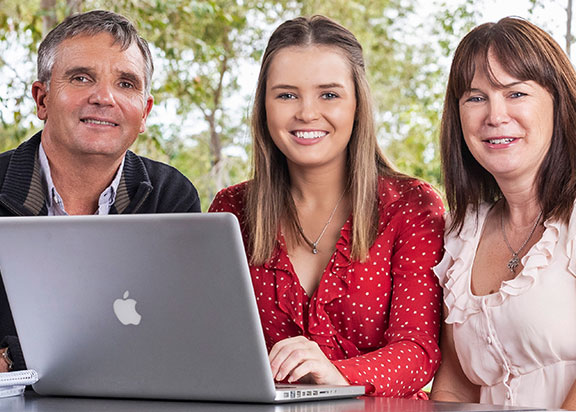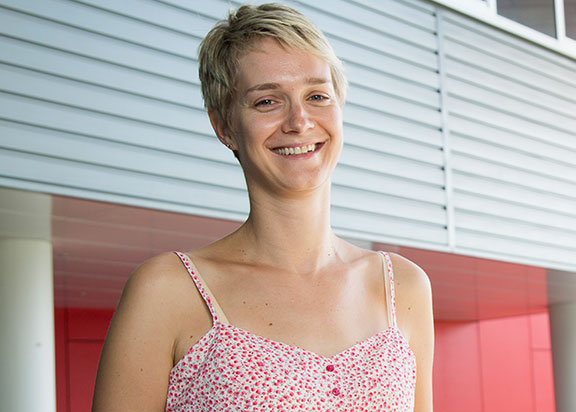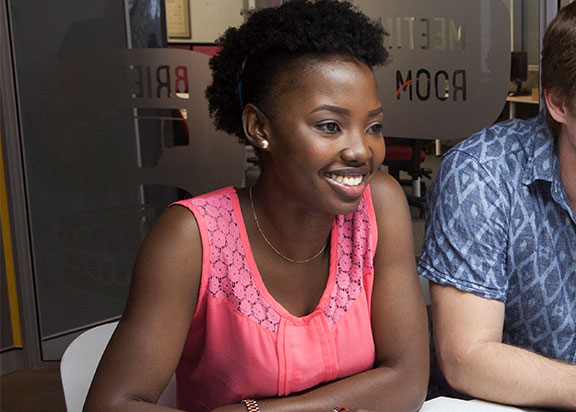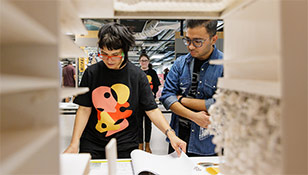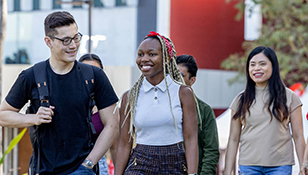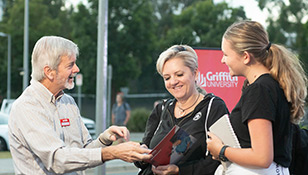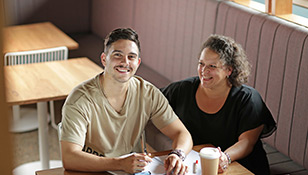For many school leavers, getting into the right degree can feel like a make-or-break event. And for parents and guardians supporting from the sidelines, it’s easy to get just as caught up. But whether your teen is working towards ATAR or VET admission, it won’t be long until they look back and wonder what they were so worried about.
You'll discover that even if they don’t achieve the selection rank they need to get into their preferred degree, there’s almost always a way they can gain entry—it just might require a few extra steps.
Deal with any disappointment
If your teen doesn’t get the ATAR they were hoping for, it’s natural for them to feel disappointed. At this point, more than anything else, they’ll need your support and reassurance.
For some teens, it might be helpful to offer some perspective, and remind them that their ATAR is only relevant for a short period of time in their lives. In fact, once they’ve entered university or the workforce, it’s unlikely they’ll ever need to think about it again.
If your teen is really struggling with their results, there’s always more help available through counsellors, GPs and other healthcare professionals. Registered charity ReachOut also offers information for teens, parents and guardians, as well as an anonymous, confidential space for young people to express themselves, discuss their feelings and find support.
Get the right advice
Your teen’s next step should be to investigate what options are still available. And although you may no longer have access to a career or school guidance counsellor, you’re not on your own. Griffith provides a range of resources and events for school leavers, as well as an online chat service where you can get accurate, personalised advice from our expert study advisers.
We’ll be able to talk you and your teen through what degrees they can enter, when they can start study, and the easiest way to upgrade their selection rank if they want to transfer into something else later. We can also help recommend degrees that are similar to your teen’s first choice, so they can receive the maximum amount of credit when they do switch over.
Check adjustment factors
It’s important to remember that the ATAR your teen is awarded isn’t necessarily the one that universities use to assess their application. Many students will be eligible for a range of adjustment factors, depending on their circumstances. At Griffith, some applicants can receive up to a total of 8.00 adjustments, with points awarded for residing in a particular region, studying certain subjects in high school, elite sporting achievements, and having experienced personal or financial hardship. These adjustment factors are generally applied automatically, and there’s nothing your teen will need to do to benefit.
Reprioritise course preferences
After your teen has all the information they need, it’s time to take another look at their QTAC or UAC preferences. Applicants are allowed to alter their preferences multiple times, well after results are released, so there are plenty of opportunities for your teen to change their mind and maximise their chance at entering a degree that suits them. For the most accurate and up-to-date information, we recommend checking out the QTAC and UAC guides to changing preferences.
Obtain a VET qualification
Griffith accepts standalone Vocational Education and Training (VET) qualifications, and a completed Australian Qualification Framework (AQF) Certificate III, IV or Diploma allows admission to a range of Griffith degrees. Depending on your teen’s degree of choice, they may be able to apply with even greater confidence, thanks to our guaranteed admission scheme. VET qualifications can be earned while at school, or afterwards through TAFE.
Complete an undergraduate diploma
Sometimes when applicants don’t quite qualify for entry into their bachelor degree of choice, they are instead offered a place in an undergraduate diploma. For most degrees, excluding those in education and music, your teen won't need to specifically apply for an undergraduate diploma—they’ll be automatically considered based on their bachelor preference.
Undergraduate diplomas provide a supported start to your teen’s university studies, as well as a direct pathway into the matched bachelor. They’ll develop the skills and knowledge they’ll need to succeed at university, have access to a wide variety of student support programs, and study alongside their peers in the full bachelor degree.
Upgrade via university study
If your teen doesn’t receive the ATAR they hoped for, they can upgrade their selection rank by completing courses (or subjects) in an alternate degree. This is known as upgrading via university study, and it’s one of the most straightforward ways for your teen to access the degree they want, whatever their end-of-school results.
When your teen is choosing an alternative degree, it’s a good idea to select one that has a similar first year to the one they want to transfer into. This will maximise the amount of credit they can be awarded for the subjects they complete, which can save both time and money.
Once your teen has completed sufficient courses and achieved the required GPA, they can move into their degree of choice, either via internal transfer or applying through QTAC/UAC, depending on the degree.

